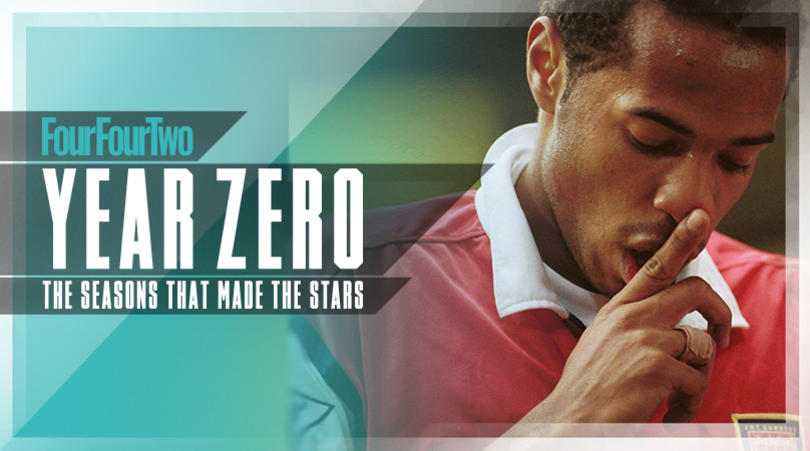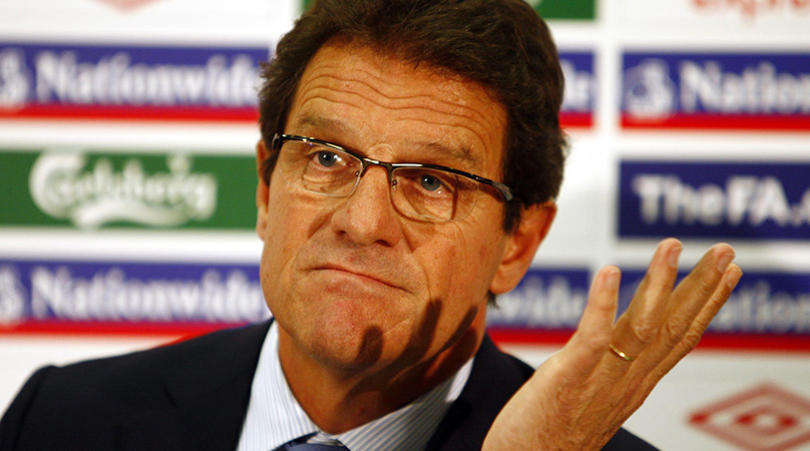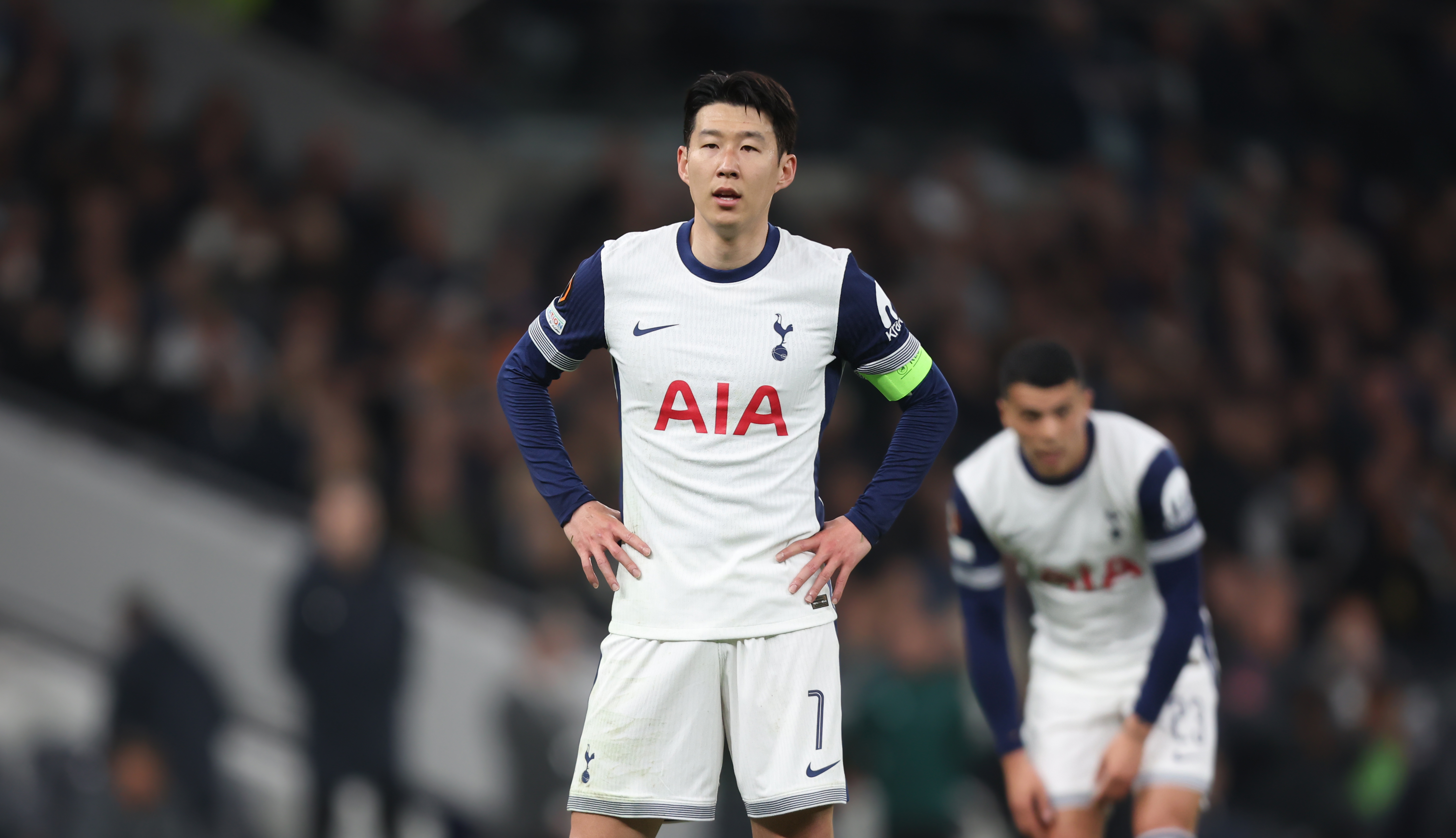10 World Cup wildcard picks who shocked the world and shone
Most surprise picks are underused and quickly forgotten, but they can occasionally define a tournament as Sean Cole recalls
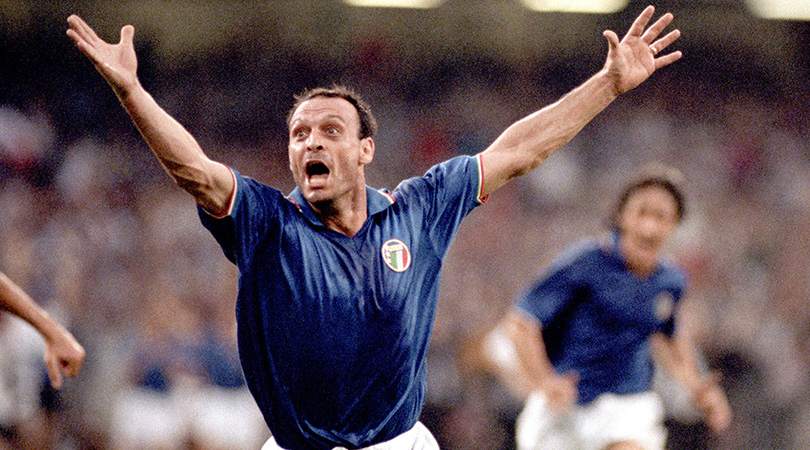
Some of the below made their international debuts during the World Cup. Others went in as fringe players unsure of their places but came out the other end as bona fide stars.
Two came in from the cold, one returned from a ban and another from retirement. Three lifted the trophy; all reached at least the quarter-finals. Starting with...
Geoff Hurst (1966)
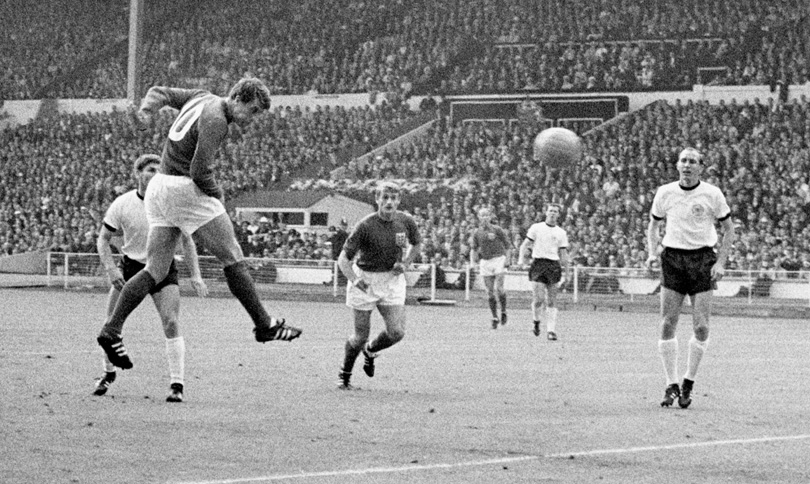
Ah, yes – him. Life could have turned out rather differently for Hurst, but events conspired to go his way in the summer of 1966.
Competition for places up front in Alf Ramsey’s England squad was fierce, and the West Ham striker only made his debut for the national team in February 1966 – just over four months before the World Cup was set to begin on home soil.
Twenty-eight players were called to pre-tournament training in May, but six were left out of the final 22-man squad (one, Brian Labone, through injury). Hurst saw off competition from Bobby Tambling and team-mate John Byrne to make the final cut.
He started out as back-up to the preferred partnership of Jimmy Greaves and Roger Hunt, but injury to Greaves in the last group game paved the way for Hurst’s decisive contributions. He got the winner against Argentina in the quarter-final, and his hat-trick in the final (despite Greaves being fit by that point) has iconic status in English football.
Get FourFourTwo Newsletter
The best features, fun and footballing quizzes, straight to your inbox every week.
Jan Jongbloed (1974)
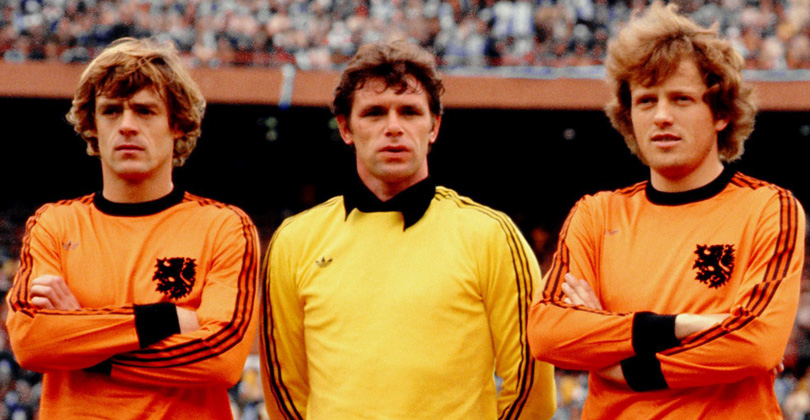
Goalkeepers tend to know their place in the pecking order. While players in other positions might fade in and out of favour as form and fitness dictate, most teams have a clear No.1 who, barring disaster, they’re determined to stick with.
In 1974, Jan Jongbloed was not that man for the Netherlands. A stalwart figure over 17 years at FC Amsterdam, he’d made his debut for the national team way back in 1962 and had only picked up one more cap before the World Cup started in West Germany. Although he was older (33) than both of his rivals for the goalkeeper’s position – Piet Schrijvers (27) and Eddy Treijtel (28) – Jongbloed had played fewer times for the Netherlands than either of them. Interestingly, none of them had more than five caps pre-tournament.
Both were taller and more conventional shot-stoppers, but the recalled Jongbloed was preferred by Rinus Michels for his ability to sweep up behind the defence. He started all seven games in the tournament, conceding just once en route to the final. Unfortunately for the Dutch, hosts and bitter rivals West Germany fought back from Johan Neeskens’ early penalty to win 2-1 in the final.
Antonio Cabrini (1978)
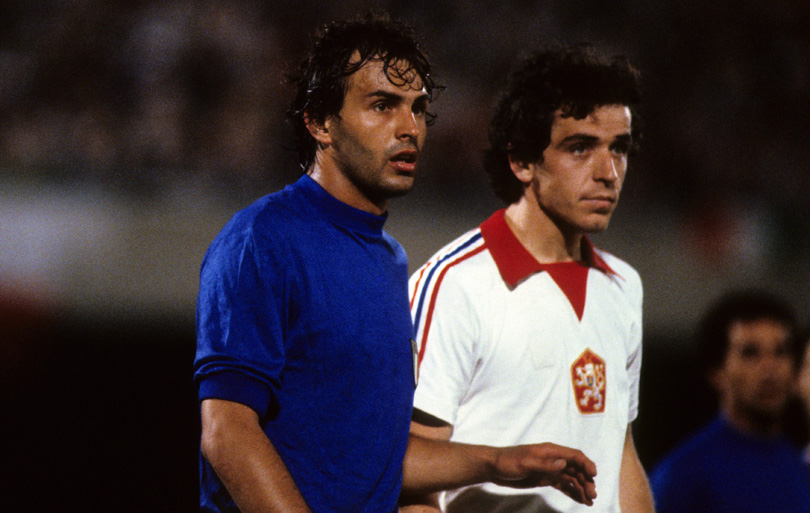
It’s rare that players come from nowhere to suddenly claim a place in a World Cup squad – rarer still when they’re defenders who have yet to make their international debut. That was the situation Antonio Cabrini found himself in when he was called up by Italy manager Enzo Bearzot in the summer of 1978.
The 20-year-old Juventus left-back made his bow in the Italians’ opening group game against France. They won 2-1 and Cabrini kept his place all the way through the tournament in Argentina. Italy finished fourth overall, losing to Brazil in the third-place play-off.
Cabrini made an excellent impression and won the tournament’s award for best young player. But he was no flash in the pan, becoming an Azzurri mainstay for almost a decade and winning the World Cup in 1982.
Paolo Rossi (1982)
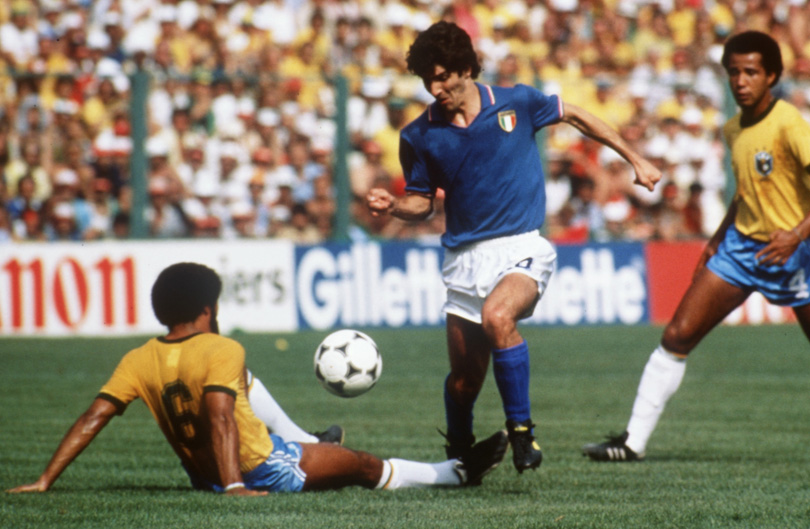
The striker was Cabrini’s close friend and room-mate on international duty, with salacious rumours about the nature of their relationship creating issues between Bearzot’s squad and the Italian press during the 1982 World Cup. It brought the team closer together and Italy went on to lift the trophy, with both players key to the success.
Rossi was a contentious selection, having recently returned from a two-year ban for his part in an alleged betting scandal. He made his comeback in the final few games of the 1981/82 season and went to the World Cup despite concerns that he was out of form and in poor physical condition.
The Italian team, and Rossi in particular, laboured their way through the first group phase but came alive thereafter. Bearzot resisted calls to drop Rossi and he repaid his manager’s faith with a hat-trick against Brazil, both goals in the 2-0 semi-final win over Poland and opening the scoring in the final as Italy beat West Germany 3-1. Those six goals earned Rossi the Golden Boot.
Roger Milla (1990)
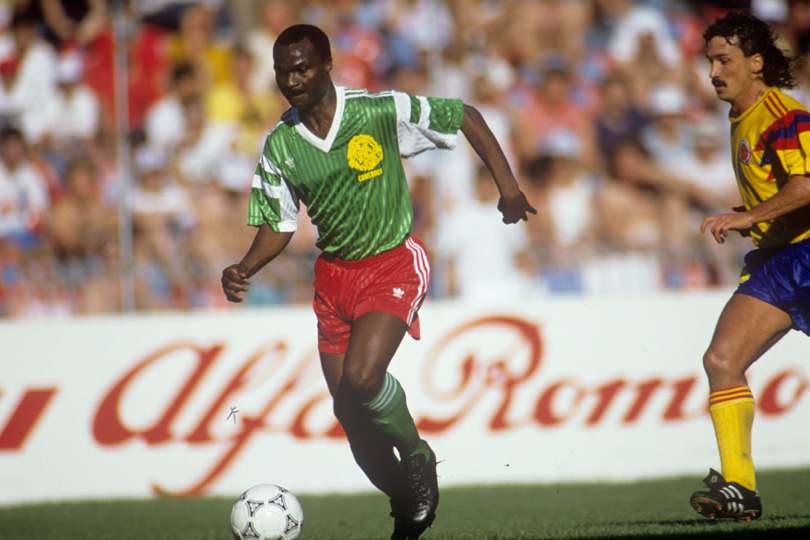
The 38-year-old striker had retired from professional football, seemingly content to settle for a quiet life on the island of Reunion, when the phone call came. It was the Cameroonian president Paul Biya, insisting that his country’s leading goalscorer should make a dramatic return to action at Italia '90.
The coach and some of his team-mates weren’t keen on the idea at first, but Milla soon proved his worth on a remarkable run to the World Cup quarter-finals. Coming off the bench, he scored twice to beat Romania in the Indomitable Lions' second group game and secure their place in the knockout rounds.
Milla grabbed another brace to see off Colombia during extra time of their second-round tie and also won a penalty in a dramatic 3-2 loss to England. He was one of the stars of the tournament and his dance at the corner flag after each goal became a famous and widely replicated celebration.
Toto Schillaci (1990)
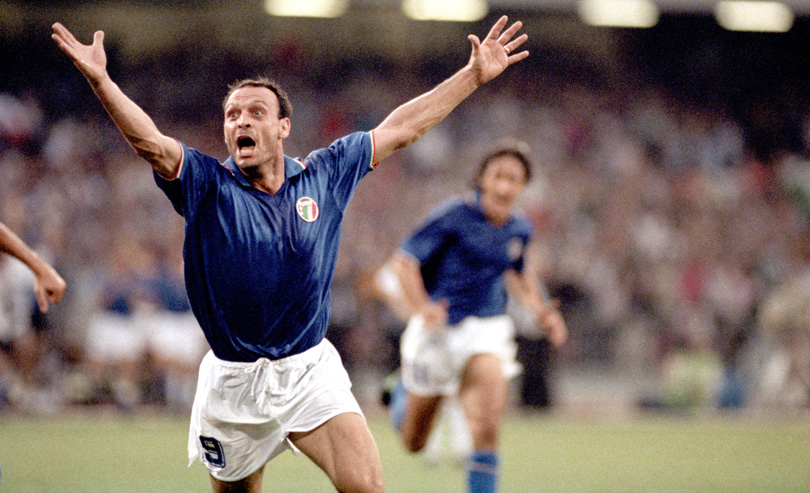
Although Schillaci’s international career only lasted a little over a year, it left an enduring mark on the Italian consciousness. A sharp but technically limited striker, he came and went in the blink of an eye, yet define a World Cup along the way.
After finishing as the top scorer in Serie B for an unfashionable Messina side, Schillaci earned a move to Juventus. He carried on that momentum in his first season at the top level, grabbing 15 goals in 30 appearances. Despite a brief and uneventful debut in a friendly against Switzerland in March 1990, Dino Zoff had seen enough to include him in his squad.
Schillaci began the tournament on the bench, but still scored the winner in Italy’s opening match against Austria. He started alongside Roberto Baggio in their final group game against Czechoslovakia, once more finding the net. The striker was ever-present thereafter, scoring six times in total as the home nation reached the semi-finals only to lose to Argentina on penalties. Schillaci picked up the Golden Boot and was named the tournament’s best player for his efforts.
Thierry Henry (1998)
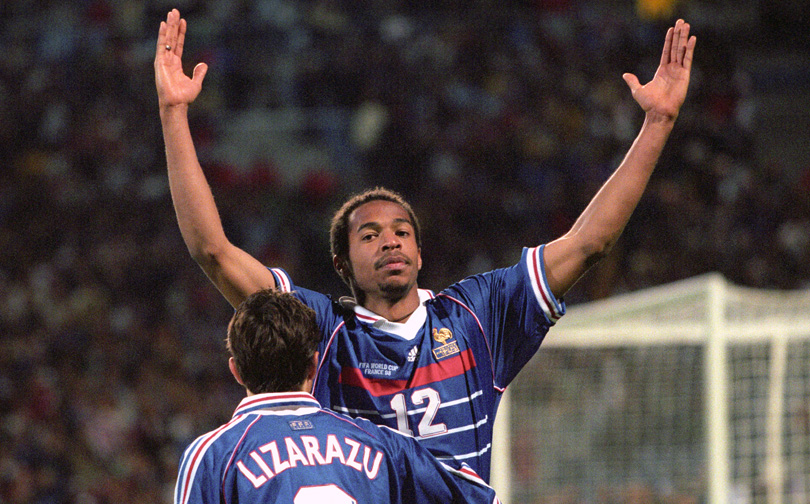
Nicolas Anelka and Henry battled it out for the final spot in Aime Jacquet’s France squad. There was room for one more attacker, and the two livewire youngsters were in direct competition for it. Anelka had just enjoyed a breakthrough season with Arsenal, helping them to the Double. He'd also scored in the FA Cup final win over Newcastle – but it still wasn’t enough.
Henry was given the nod despite failing to find the net in his first three international appearances. All that changed once the World Cup got underway, though, with the 20-year-old starting and scoring in France’s opening game against South Africa. He was a constant threat and got the game’s third goal in injury time, then followed that up with a brace in a 4-0 defeat of Saudi Arabia.
Although Henry didn’t add to his tally after that, he was still his country’s top scorer in the tournament and converted a crucial spot-kick in the shootout win over Italy at the quarter-final stage. He remained on the bench in the final itself, but had certainly earned his winner’s medal by that point.
Franck Ribery (2006)
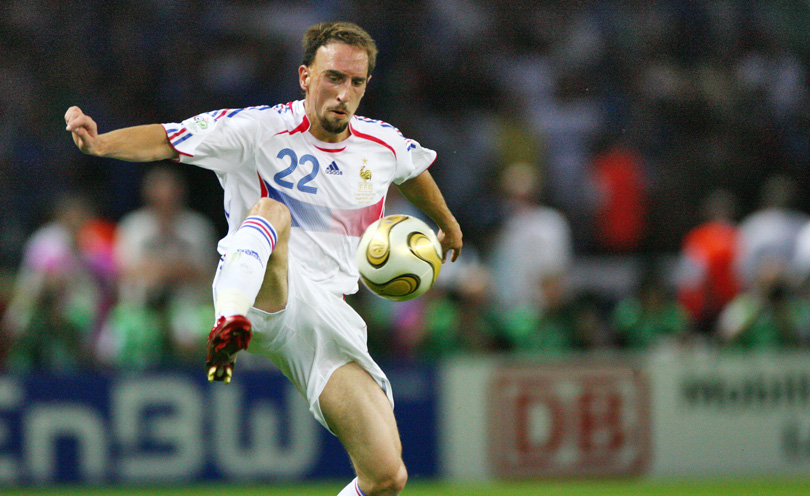
Eight years on, and Henry was one of the senior figures in the French dressing room who Ribery credited with easing his introduction into the national team. After a difficult year in Turkey with Galatasaray, the erratic winger had rediscovered his best form at Marseille.
Despite having been called up for pre-tournament friendlies against Mexico, Denmark and Chile (making brief cameos in each), it was expected that Ribery would be used as little more than an impact substitute. Somewhat surprisingly, he started all but one of France’s seven matches as they made it to the final, only to lose on penalties to Italy.
Ribery scored a crucial equaliser against Spain in the second round, running onto Patrick Vieira’s through-ball and rounding Iker Casillas impressively to tap home. By the end of the tournament, the 23-year-old was regarded as one of European football’s brightest prospects.
Thomas Muller (2010)
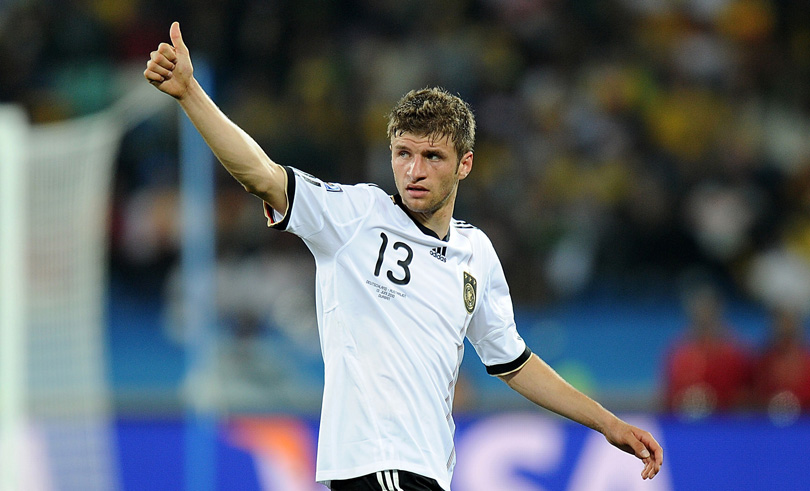
Upon his appointment as Bayern Munich manager in the summer of 2009, Louis van Gaal set about overhauling a club that had endured an uninspiring and trophyless season under Jurgen Klinsmann.
The Dutchman turned a couple of unheralded young players, Thomas Muller and Holger Badstuber, into first-team fixtures as Bayern won the Double and reached the Champions League final. Both were called into Joachim Low’s squad for South Africa.
Muller had only picked up two international caps before the World Cup but was thrown in at the deep end. He thrived, scoring five goals (including two against England) as Germany reached the semi-finals. Together with his three assists, it was enough to secure the Golden Boot and the award for the competition’s best young player.
Kevin-Prince Boateng (2010)
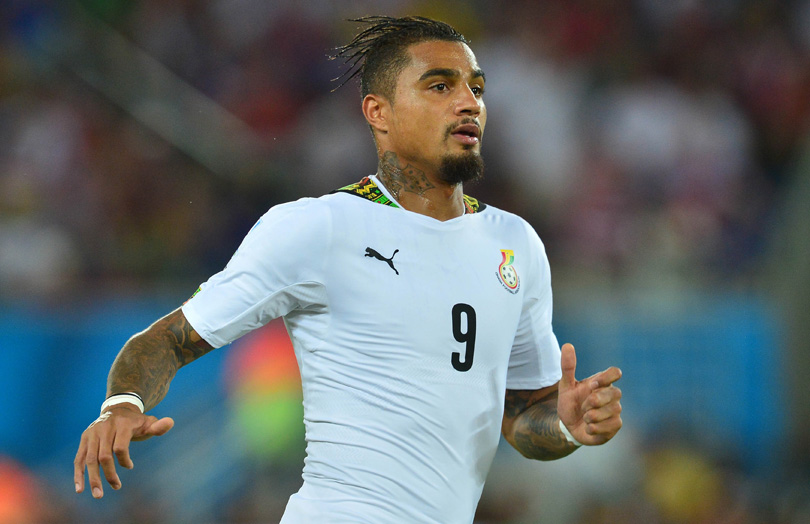
The midfielder lined up opposite Muller and half-brother Jerome in a group stage match at the same tournament. Kevin-Prince had been a Germany youth international up until 2009, when he announced that he no longer had an interest in representing the country of his birth.
Ghana had previously been in touch about taking him to the 2006 World Cup, and four years later they made the same approach. Boateng accepted the offer and transferred his allegiance in time to make the squad.
The uncapped 23-year-old was a revelation, playing with vigour and purpose at the heart of Ghana’s midfield. He scored an impressive solo goal against the USA in the second round, but the African side were cruelly knocked out by Uruguay on penalties in the quarter-finals. Asamoah Gyan had missed a penalty in the final minute of extra time after Luis Suarez’s infamous goal-line handball.

Sean Cole is a freelance journalist. He has written for FourFourTwo, BBC Sport and When Saturday Comes among others. A Birmingham City supporter and staunch Nikola Zigic advocate, he once scored a hat-trick at St. Andrew’s (in a half-time game). He also has far too many football shirts and spends far too much time reading the Wikipedia pages of obscure players.
